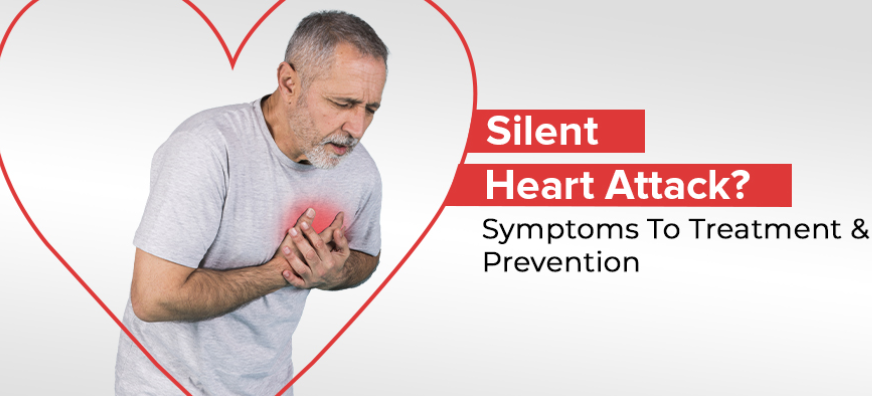Heart disease remains the leading cause of death worldwide, and among its most dangerous forms is the silent heart attack. Unlike typical heart attacks that come with chest-clutching pain and dramatic symptoms, silent heart attacks often occur with mild or overlooked signs—sometimes with no symptoms at all. This stealthy nature makes them particularly lethal.
🫀 What Is a Silent Heart Attack?
A silent heart attack, also known as a silent myocardial infarction (SMI), occurs when blood flow to a part of the heart is blocked, but the signs are so subtle that the person may not realize what has happened. These attacks can cause lasting damage to the heart, increasing the risk of future cardiac events.
Often, individuals only discover they had a silent heart attack during routine checkups, ECGs, or after experiencing a second, more noticeable attack.
🚨 Warning Signs You Should Never Ignore
Even though these attacks are “silent,” they often come with some symptoms. Here’s what to look out for:
1. Unexplained Fatigue
Persistent, unusual tiredness—especially after minimal exertion—can indicate reduced blood flow to the heart.
2. Mild Chest Discomfort
A feeling of tightness, pressure, or mild pain that comes and goes, rather than sharp chest pain.
3. Shortness of Breath
Suddenly finding it hard to catch your breath after simple activities like climbing stairs may be a warning sign.
4. Dizziness or Lightheadedness
Feeling faint or dizzy, especially if accompanied by cold sweats, could suggest reduced heart function.
5. Pain in the Jaw, Neck, or Left Arm
Sometimes heart-related pain is “referred,” showing up in other areas instead of the chest.
6. Nausea or Indigestion
Unexplained stomach discomfort, nausea, or bloating may be misinterpreted as gastrointestinal issues when the real problem lies in the heart.
🎯 Who Is at Risk?
Silent heart attacks are more common among:
- Diabetics (due to nerve damage dulling pain)
- Older adults
- Women, who may have more subtle symptoms
- People with high cholesterol, high blood pressure, or a family history of heart disease
🩺 Diagnosis and Prevention
Silent heart attacks can only be confirmed through tests like ECG, echocardiograms, or cardiac MRI. Regular health checkups are vital—especially for those at risk.
Preventive Tips:
- Eat a heart-healthy diet (low in saturated fat and processed sugar)
- Exercise regularly
- Monitor blood pressure, cholesterol, and blood sugar
- Quit smoking and limit alcohol
- Manage stress effectively
🧠 Final Thoughts
Silent heart attacks are a serious health threat because of how easily they go unnoticed. If you experience any unusual symptoms or just feel “off,” don’t dismiss them. It’s better to seek medical advice and be safe than sorry.

